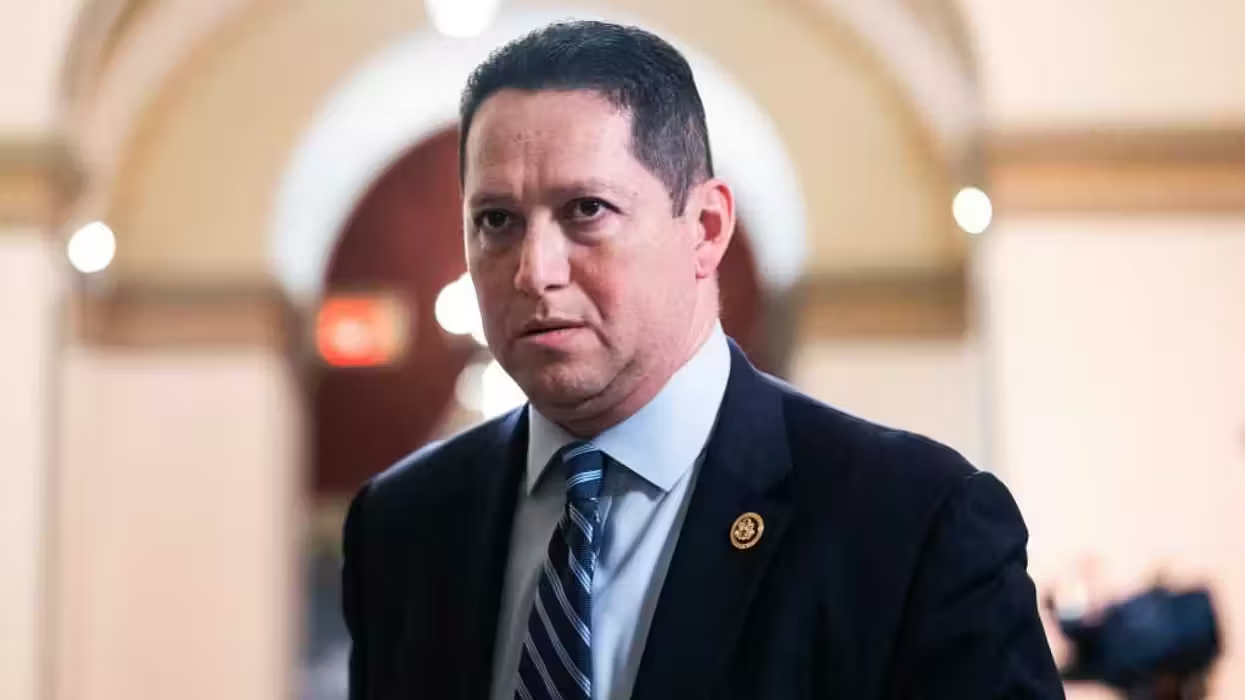
© 2026 Blaze Media LLC. All rights reserved.
Is Mandatory Participation in Vaccine Trials 'Not as Outlandish as it Might Seem'?
January 18, 2012
"...all for the greater good of society."
Two clinical research fellows at the University of Oxford Jenner Institute have suggested in the American Medical Journal of Ethics that requiring people to participate in vaccination trials may not be "as outlandish as it might seem".
Citing declining numbers of healthy volunteers for vaccine trials, Susanne Sheehy and Joel Meyer coauthor an article in the journal in which they note several examples where countries have instituted mandates requiring citizen participation "for the good of society."
Sheehy and Meyer write that in the current system, "meager compensation" for volunteers participating in vaccine trials can "belittle and undervalue the contribution of these individuals" and the volunteer demographic is often composed of those in need of money -- students and those without jobs are mentioned by the authors. The authors state that this means the risks associated with some vaccines, which could eventually benefit the whole of society, are "carried disproportionately by some of society’s most poor and vulnerable." The authors also note that increasing payment for trial participation could be seen as unethical.
So, as a solution if recruitment numbers remain low due to low financial incentive, fear of potential vaccine risks and lack of animal models similar to humans, Sheehy and Meyer suggest "compulsory involvement" as an alternative. The authors point to instances where some countries have required action from citizens where the "risks or inconvenience to an individual are usually limited and minor." Examples they include are jury duty, required military service and some European countries requiring citizens to specifically request their organs not be donated upon death, as opposed to choosing organ donorship. Here's what the authors say comparing trail participation with military conscription:
In both conscription and obligatory trial participation, individuals have little or no choice regarding involvement and face inherent risks over which they have no control, all for the greater good of society.
Noting several principles against mandating participation in vaccine trials, including self-autonomy, the authors then settle on something they call "a policy of mandated choice". With such a policy, citizens would be required to opt in or out of participating in vaccine trials in advance. The authors state:
The advantage of this system is that it could identify a large cohort of willing volunteers from which participants could be recruited rapidly without jeopardizing individual autonomy. It would encourage an open, noncoercive philosophy for tackling societal challenges without compromising individual freedom or public trust in the health care system.
As a bit of a sidenote, the authors call to mind how society views vaccines. Sheehy and Meyer believe that society's view of vaccinations are hampered by "sensationalist and unfounded stories" like that tying the measles-mumps-rubella vaccine with autism, while citizens should view vaccines as taking "once-feared illness out of the public eye.
Want to leave a tip?
We answer to you. Help keep our content free of advertisers and big tech censorship by leaving a tip today.
Want to join the conversation?
Already a subscriber?
more stories
Sign up for the Blaze newsletter
By signing up, you agree to our Privacy Policy and Terms of Use, and agree to receive content that may sometimes include advertisements. You may opt out at any time.
Related Content
© 2026 Blaze Media LLC. All rights reserved.
Get the stories that matter most delivered directly to your inbox.
By signing up, you agree to our Privacy Policy and Terms of Use, and agree to receive content that may sometimes include advertisements. You may opt out at any time.







